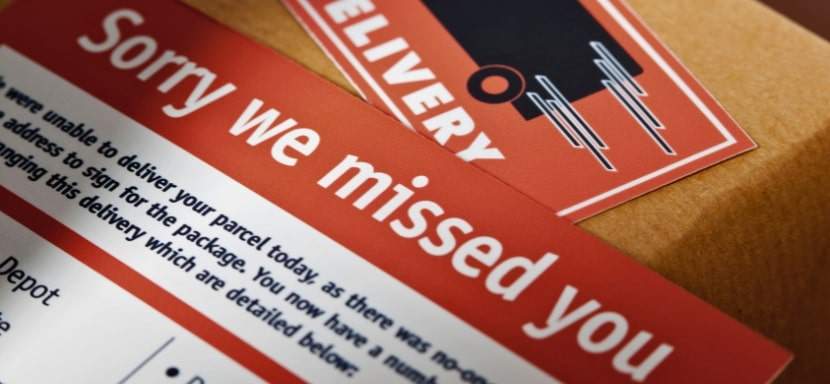How to Survive Social Media Addiction

Social media, a digital marvel, has transformed how we connect, communicate, and consume. But let’s face it—those endless hours of scrolling, liking, and posting can feel like you’re tethered to a relentless loop. It’s a modern challenge that feels as daunting as real-life survival scenarios, testing your discipline, focus, and priorities. If you’ve ever caught yourself saying, “Just five more minutes,” only to lose hours, you’re not alone. Surviving a social media addiction isn’t easy, but it is entirely possible.
This article explores actionable strategies to help you reclaim your time, improve your mental well-being, and rediscover the joys of the offline world. It proves that even in the most demanding digital “survival scenarios,” you can emerge victorious.
Key Points
- Plan Ahead – Set clear time limits for your social media usage and identify your most time-consuming apps in advance.
- Start Small – Begin with short breaks from social media and gradually increase your offline time to build discipline.
- Stay Mindful – Recognize your triggers and practice mindfulness techniques to resist the urge to scroll endlessly.
What Is Social Media Addiction?
Social media addiction is a compulsive need to engage with social platforms, often at the expense of real-life interactions and responsibilities. Whether it’s doomscrolling on Twitter, checking notifications obsessively, or feeling anxiety when you’re offline, these behaviors can disrupt your daily life.
How to Tell If You’re Addicted to Social Media
Social media addiction often sneaks up on you, blending seamlessly into daily routines until it feels normal. Recognizing the signs is the first step toward regaining control of your time and mental well-being. If you relate to several of these points, it might be time to reassess your relationship with social media.
- Constant Checking – You feel compelled to check your phone for updates multiple times an hour.
- Social Media Outage Anxiety – Even temporary social media outages make you feel restless or disconnected, highlighting dependency.
- Mood Swings – Likes, comments, or lack thereof heavily influence emotions.
- Sleep Disruption – Late-night scrolling keeps you awake longer than planned.
- Phantom Notifications – You imagine your phone vibrating or hearing alerts even when there are none.
- Reduced Productivity – Social media consumes the time you need for work, school, or personal goals.
- Neglected Relationships – You prioritize online interactions over spending time with loved ones.
- FOMO (Fear of Missing Out) – The idea of missing updates or trends causes anxiety.
- Mindless Scrolling – You find yourself scrolling with no purpose, simply out of habit.
- Difficulty Disconnecting – Going offline, even temporarily, feels impossible or stressful.
- Increased Screen Time – You notice your screen time is steadily rising but struggle to cut back.
10 Quick Tips for Surviving a Social Media Addiction
Overcoming a social media addiction might feel overwhelming at first, but small, consistent steps can lead to big changes. By implementing practical strategies, you can regain control of your time, focus, and well-being.
Here are ten quick tips to help you survive and thrive beyond the scrolling frenzy:
- Set Clear Limits – Use apps or timers to restrict your daily screen time and stick to them.
- Turn Off Notifications – Silence alerts to minimize distractions and reduce the urge to check your phone.
- Delete Unnecessary Apps – Keep only the social media platforms you genuinely need and remove the rest.
- Schedule Social Media Time—Dedicate specific times of the day to checking your accounts and avoid logging in outside those windows.
- Focus on Offline Activities – Replace scrolling with hobbies, exercise, or spending time with loved ones.
- Create Digital-Free Zones – Keep phones and tablets out of bedrooms or dining areas.
- Use Grayscale Mode – Switch your phone display to grayscale to make social media less visually appealing.
- Track Your Usage—Use built-in tools or apps to monitor your time spent online and set goals for reducing it.
- Practice Mindfulness – Learn to identify emotional triggers and use breathing exercises to resist impulsive scrolling.
- Seek Support – Share your goals with friends or family who can help hold you accountable and encourage healthier habits.
Signs You’re Hooked on Social Media
Recognizing the signs of social media addiction is the first step toward breaking free. If your daily life feels dominated by notifications, endless scrolling, and a constant urge to check your phone, it may be time to examine your habits more closely.
You’re Constantly Checking Your Phone
Do you panic when your phone battery is low, or Wi-Fi isn’t available? That’s a red flag.
It Impacts Your Sleep
Late-night scrolling can wreck your sleep schedule. Blue light exposure tricks your brain into thinking it’s daytime, leaving you wide-eyed at midnight.
Your Relationships Suffer
If you’re more focused on Instagram likes than family dinners, it’s time to reassess.
Why Do We Get Addicted to Social Media?
Social media platforms are designed to keep us engaged. Notifications, likes, and comments release dopamine, creating a reward loop similar to what you’d find in gambling or gaming. Over time, this loop becomes hard to break, making social media addiction a widespread issue.
Did You Know?
excessive social media use can rewire your brain’s reward system, making it harder to experience joy from real-life activities? Studies show that the constant dopamine hits from likes and notifications can dull your natural ability to feel pleasure, creating a cycle of dependency.
The Dangers of Social Media Addiction
Excessive social media use can have serious consequences, including:
- Mental Health Issues: Anxiety, depression, and low self-esteem.
- Productivity Loss: Endless scrolling eats into your day, leaving you feeling unaccomplished.
- Strained Relationships: Real-life connections may take a backseat.
Practical Tips to Survive a Social Media Addiction
Breaking free from social media addiction doesn’t happen overnight, but with the right strategies, you can reclaim your time and mental clarity. By incorporating simple, practical tips into your daily routine, you can take meaningful steps toward a healthier, more balanced relationship with technology.
Here’s how to get started.
Set Boundaries
Start by setting limits for your social media usage. Use tools like:
- Screen Time: Track and limit your daily usage of specific apps.
- Focus Mode: Block apps during work or personal time.
Create a Schedule
Allocate specific times for social media, like 15 minutes in the morning and evening, and stick to your schedule.
Turn Off Notifications
Constant pings and pop-ups are engineered to grab your attention. Turn them off to reduce temptation.
Replace Scrolling with Meaningful Activities
One of the best ways to overcome social media addiction is to fill your time with activities that bring absolute joy and fulfillment. By swapping mindless scrolling for meaningful hobbies and connections, you can enrich your life and rediscover what truly matters.
Find New Hobbies
Swap your screen time for activities like painting, reading, or cooking. Offline hobbies enrich your life and help you rediscover joy.
Prioritize Exercise
Physical activity improves your health and distracts you from the urge to scroll. A simple walk can work wonders.
Practice Mindfulness
Mindfulness is a powerful tool for overcoming social media addiction. By staying present and aware, you can recognize the triggers that lead to excessive scrolling and make conscious choices to break the cycle.
Be Present
Mindfulness helps you stay grounded and aware of your habits. Use techniques like deep breathing or meditation to combat the urge to pick up your phone.
Journaling
Write about your feelings and triggers. Reflecting can help you understand why you gravitate toward social media and how to stop it.
Reassess Your Social Media Goals
Ask yourself: Why do you use social media? Whether it’s for business, networking, or personal entertainment, knowing your purpose can help you use it wisely.
Reconnect with Real Life
In the digital age, it’s easy to lose touch with the joys of real-life experiences. Reconnecting with the world around you can provide a refreshing sense of balance and fulfillment, helping you move past social media’s grip.
Spend Time with Loved Ones
Plan activities like family game nights or outings with friends. Human interaction beats any virtual connection.
Go Tech-Free During Meals
Make meal times a sacred, phone-free space. You’ll enjoy your food more and strengthen your relationships.
Identify Triggers and Take Action
Triggers can include boredom, stress, or loneliness. Once you identify yours, replace them with healthier habits like journaling, exercising, or spending time outdoors.
Set Social Media-Free Zones
Creating social media-free zones in your daily life is a simple yet effective way to limit screen time and foster healthier habits.
By designating specific spaces or times as off-limits for devices, you can reclaim focus, strengthen relationships, and enjoy uninterrupted moments.
Keep Phones Out of the Bedroom
Invest in an alarm clock and leave your phone charging outside the bedroom to improve sleep quality.
Create Digital-Free Hours
Establish times when all devices are off-limits, such as during family time or before bed.
The Role of Accountability
Share your goals with a trusted friend or family member. They can help you stay on track and celebrate your milestones.
Seek Professional Help if Needed
Sometimes, the addiction is too deep to tackle alone. Therapy or counseling can provide valuable tools and guidance to overcome it.
FAQs
What is the root cause of social media addiction?
The root cause often lies in a reward system that releases dopamine when interacting with social media. Other factors include boredom, anxiety, and a fear of missing out (FOMO).
How can I limit my social media usage?
Start by setting screen time limits, turning off notifications, and replacing scrolling with offline activities like hobbies or exercise.
Is social media addiction harmful?
Yes, it can lead to mental health issues like anxiety and depression, harm relationships, and reduce productivity.
What are good alternatives to social media?
Engage in hobbies, spend time outdoors, exercise, or connect with loved ones face-to-face.
How long does it take to break a social media addiction?
It depends on the individual. With consistent effort, many people see significant improvement within a few weeks.
Can mindfulness help with social media addiction?
Absolutely! Mindfulness helps you recognize triggers and stay present, reducing the compulsion to check your phone.
Final Thoughts: How to Survive Social Media Addiction
Surviving social media addiction is a journey, not a sprint—it takes time, patience, and consistent effort. Breaking free from the cycle of endless scrolling requires a thoughtful approach and a commitment to changing your habits.
By setting clear boundaries around your digital usage, you can create space for more meaningful activities. Practicing mindfulness helps you stay present, enabling you to recognize triggers and resist the urge to check your phone constantly. Prioritizing real-life connections allows you to rebuild relationships and rediscover the joy of face-to-face interactions.
Each small step you take brings you closer to a more balanced and fulfilling life, where technology becomes a tool to enhance rather than dominate your world. Life is far too precious to be spent staring endlessly at a screen. So, step back, breathe deeply, and embrace the opportunity to reconnect with the authentic and meaningful experiences that truly matter.
Fascinating Facts About Social Media Addiction
Social media addiction is a modern phenomenon that affects millions worldwide. At the same time, it might seem like harmless scrolling, but social media’s psychological and behavioral impact is profound and, at times, surprising.
Here are some intriguing facts about social media addiction that shed light on its influence and challenges.
- Engineered for Addiction – Social media platforms use algorithms designed to maximize user engagement, tapping into the brain’s reward system.
- Dopamine Dependency – Every like, share, or comment triggers a dopamine release, creating a cycle of craving and reward similar to substance addiction.
- Time Sink – The average person spends over two hours daily on social media, up to over five years in a lifetime.
- Phantom Vibration Syndrome – Many social media users report feeling their phone vibrate when it hasn’t, a psychological side effect of constant connectivity.
- FOMO Fuels Usage—The Fear of missing out (FOMO) drives people to check social media obsessively, especially among younger users.
- Mental Health Impact – Excessive social media use is linked to increased rates of anxiety, depression, and low self-esteem.
- Teens Are Most Vulnerable – Studies show teenagers are the most affected demographic, with higher rates of cyberbullying and screen addiction.
- Unfollowing to Happiness – Reducing your social media use or unfollowing accounts that cause stress can significantly improve mental well-being.
- Global Phenomenon – Social media addiction isn’t limited to one region; it’s a worldwide issue that spans cultures and age groups.
- Breaks Boost Productivity – Taking regular breaks from social media helps with addiction and improves focus and productivity in daily life.
More Life Surival Scenarios
How to Survive a Layoff
Layoffs feel personal—even when they’re not. One day, you’re responding to Slack messages and forwarding…
How to Survive a Drug Test
I never imagined I’d be so emotionally invested in a paper cup. But there I was, standing under the fluorescent…
How to Survive an Interrogation
If you’ve ever been caught in the crosshairs of an overly enthusiastic mall cop or stared down by someone…
How to Survive a Bachelor Party
A bachelor party is a delicate mix of celebration, chaos, and questionable decision-making, wrapped…
How to Survive Your First Time at the Gym
Walking into a gym for the first time can feel like stepping into an alien world. The machines hum with…
Recent Survival Posts
How to Survive a Layoff
Layoffs feel personal—even when they’re not. One day, you’re responding to Slack messages and forwarding…
How to Survive a Drug Test
I never imagined I’d be so emotionally invested in a paper cup. But there I was, standing under the fluorescent…
How to Survive an Interrogation
If you’ve ever been caught in the crosshairs of an overly enthusiastic mall cop or stared down by someone…
How to Survive a Nightclub Shooting
Nightclubs pulse with life—lights flashing, music pounding, bodies packed tight on the dance floor. It’s a place to…
How to Survive a Bachelor Party
A bachelor party is a delicate mix of celebration, chaos, and questionable decision-making, wrapped…
More Real-Life Survival Scenarios

How to Survive a Drug Test
The Cup, The Room, The Truth I never imagined I’d be so emotionally invested in a paper cup. But there I was, standing under the fluorescent hum of a strip-mall clinic, trying to recall the last time I ate a poppy seed bagel. That’s the thing about drug tests—they...

How to Survive an Interrogation
If you've ever been caught in the crosshairs of an overly enthusiastic mall cop or stared down by someone in a uniform with a clipboard and a glare, you’ve felt it — the chilly fingers of interrogation anxiety. And while most of us imagine interrogation scenes as...

How to Survive a Bachelor Party
A bachelor party is a delicate mix of celebration, chaos, and questionable decision-making, wrapped in the noble intention of sending the groom off into married life with a night he’ll (hopefully) remember. It’s a ritual as old as time—well, as old as men deciding...

How to Survive Your First Time at the Gym
Walking into a gym for the first time can feel like stepping into an alien world. The machines hum with purpose, the regulars move confidently, and you’re left standing there, clutching your water bottle, wondering whether you’re in the right place—or on the right...

How to Survive a Missed Package Delivery
Life throws curveballs. One moment, you’re eagerly waiting for your package like a kid on Christmas morning, and the next, there’s a smug little note stuck to your door. A missed package delivery. It feels like a breakup letter from the universe. But don’t worry—I’ve...
More Survival Scenarios

How to Survive a Layoff
When the Floor Falls Out: The Reality of a Layoff Layoffs feel personal—even when they're not. One day, you're responding to Slack messages and forwarding emails. Next, you're staring at your monitor as it logs you out... for good. Whether it's a restructuring, a...

How to Survive a Drug Test
The Cup, The Room, The Truth I never imagined I’d be so emotionally invested in a paper cup. But there I was, standing under the fluorescent hum of a strip-mall clinic, trying to recall the last time I ate a poppy seed bagel. That’s the thing about drug tests—they...

How to Survive an Interrogation
If you've ever been caught in the crosshairs of an overly enthusiastic mall cop or stared down by someone in a uniform with a clipboard and a glare, you’ve felt it — the chilly fingers of interrogation anxiety. And while most of us imagine interrogation scenes as...

How to Survive a Nightclub Shooting
Nightclubs pulse with life—lights flashing, music pounding, bodies packed tight on the dance floor. It’s a place to escape, feel the rhythm, and lose yourself in the crowd. But that same energy can turn deadly in seconds, transforming a night of fun into one of the...

How to Survive a Bachelor Party
A bachelor party is a delicate mix of celebration, chaos, and questionable decision-making, wrapped in the noble intention of sending the groom off into married life with a night he’ll (hopefully) remember. It’s a ritual as old as time—well, as old as men deciding...

How to Survive Your First Time at the Gym
Walking into a gym for the first time can feel like stepping into an alien world. The machines hum with purpose, the regulars move confidently, and you’re left standing there, clutching your water bottle, wondering whether you’re in the right place—or on the right...

How to Survive a Worldwide Communications Breakdown
Imagine waking up to silence. Your phone doesn’t buzz, your email won’t load, and even your local radio station crackles with static. A worldwide communications breakdown has hit. What next? For many, this doomsday scenario may sound like the opening lines of a...

How to Survive a Flash Flood While Driving
Surviving a flash flood while driving requires quick thinking, calmness, and a solid plan to ensure your safety. Preparation can make all the difference between a close call and a catastrophe in emergencies like this. This guide provides practical advice to protect...

How to Build an Emergency Kit
Emergencies don’t knock politely at the door. They barge in, uninvited, like a distant relative with a penchant for drama, turning your world upside down without warning. Whether it’s a power outage, a natural disaster, or an unexpected evacuation, the key to staying...

How to Protect Yourself From Insects in the Wild
There’s nothing like being out in the wild—birdsong echoing through the trees, the fresh scent of earth, and a deep sense of peace that makes you think, “Ah, this is what life is about.” But then comes the buzzing. Mosquitoes, ticks, and flies swoop in like uninvited...
